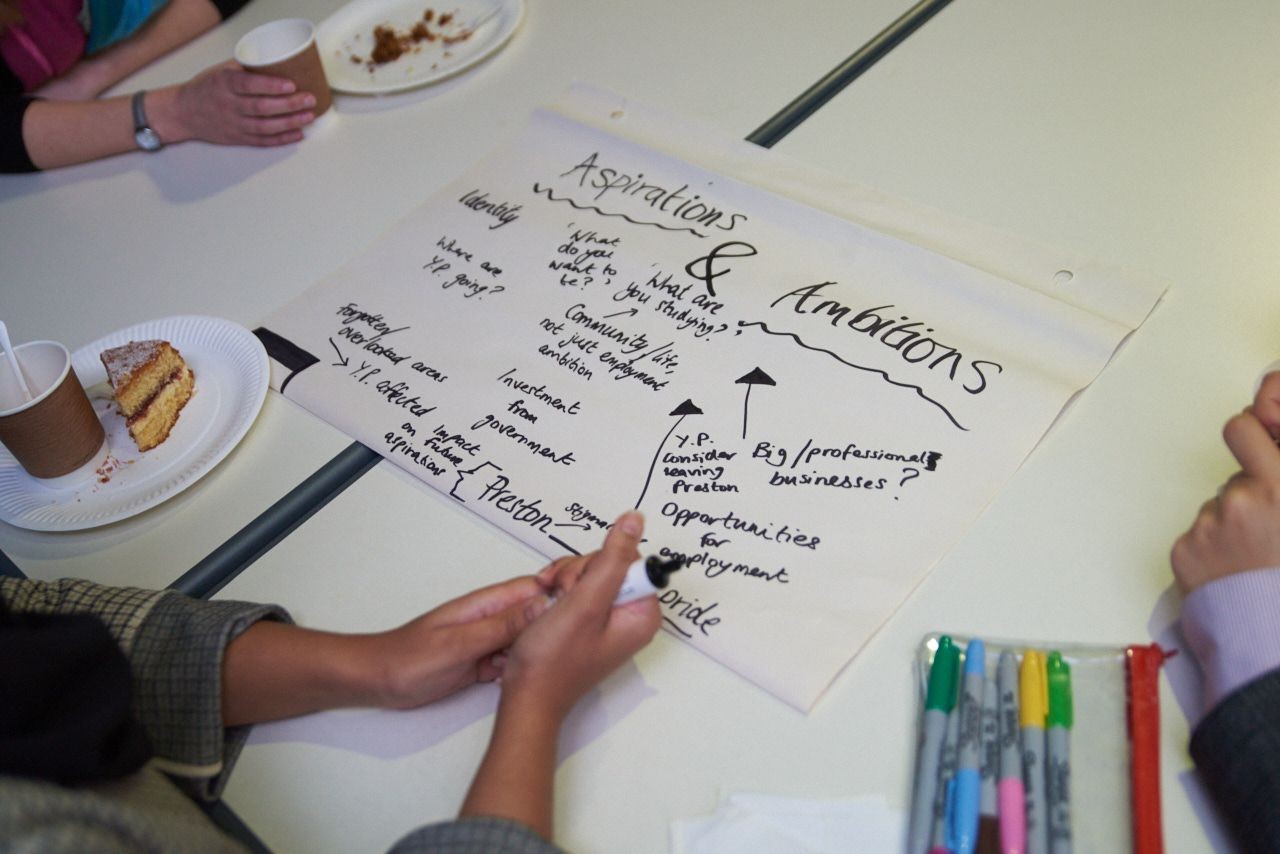Julie Ridley and Salma Qasim, UCLan research team
Our ambition for the Living Lab
In the UK, a team of social science academics and young students are exploring 'community belonging' along with young citizen scientists. Our key aspiration is to identify with the young citizen scientists, new ways to ensure young people feel they belong and are included in Preston. Using insights from data we've collected so far with young people we held our first Living Lab in November 2022, bringing together young citizen scientists and others to start a conversation that will produce ideas for new and better policy making to improve young people's sense of belonging and inclusion.
The Living Lab is a research approach that offers the possibility of tackling identified problems or issues in new ways, finding innovative ways of dealing with the issues. At this first Living Lab at the University of Central Lancashire, young citizen scientists and the university research team exchanged opinions and ideas with the Mayor of Preston and his consort, and with representatives of Citizens UK and health services professionals. Although we are still in the early stages of identifying the nature of the social innovation in our project, we were hearing about young people's experiences and perspectives that we wouldn't otherwise hear and having discussions with other stakeholders that can contribute to identifying youth-focused ways of increasing social belonging.
What did we learn at the Living Lab?
We discovered that belonging has both intrinsic and extrinsic features – some people feel they belong anywhere in the world and others that they feel they belong when in places special for them, or connecting with family, friends, or others with shared interests. Young people believe they are often overlooked in society, and their opinions forgotten. Self identity and whether young people feel proud of where they are from can have a direct affect on their aspirations and ambitions and on whether they perceive a place as offering them a future. Investment by local and central government and businesses to tackle core societal issues, for instance, increasing job opportunities would go some way to reconnecting young people with Preston.
There were few chances currently for young people in the city to voice their opinions or to be involved in decision making. More could be done to ensure young people's voices are heard and to prioritise young people's interests. Unsurprisingly, we identified that young people are rarely involved in decision-making processes and that having more say, especially about decisions affecting them – an example was the new Youth Zone that no one seems to know about but is a major youth development in the city- is vital.
Discussions concluded few social events in Preston are for younger people, especially for 14–18-year-olds. Finding spaces where they can feel welcome and that they belong is a problem with lots of public spaces felt to be dominated by adults. Young people not having enough to do was felt to be a problem as was social media including mobile phones. What would help increase belonging therefore includes creating more young person friendly spaces to connect with others and a variety of opportunities such as art clubs, cooking clubs, sports and music events.
What's next for us?
The research team will continue to reflect on the issues and challenges identified and will reach out to other relevant stakeholders and invite them to the Living Lab meetings in 2023.At these we will consider all the data collected to help identify with young citizen scientists new ways and means that can reduce exclusion and increase young people's social belonging. Our next Living Labs will be start February 2023.
Comments
By accepting you will be accessing a service provided by a third-party external to https://www.youcountproject.eu/
This website uses no external trackers, no analytics, just session cookies and values your online privacy.







